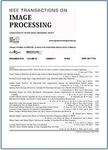版权所有:内蒙古大学图书馆 技术提供:维普资讯• 智图
内蒙古自治区呼和浩特市赛罕区大学西街235号 邮编: 010021

作者机构:Indian Inst Technol Hyderabad Dept Artificial Intelligence Hyderabad 502285 India Indian Inst Technol Hyderabad Dept Comp Sci & Engn Hyderabad 502285 India Univ Agder Dept Informat & Commun Technol N-4879 Grimstad Norway
出 版 物:《IEEE TRANSACTIONS ON IMAGE PROCESSING》 (IEEE Trans Image Process)
年 卷 期:2025年第34卷
页 面:885-898页
核心收录:
学科分类:0808[工学-电气工程] 08[工学] 0812[工学-计算机科学与技术(可授工学、理学学位)]
基 金:Prime Minister Research Fellowship (PMRF) Ministry of Education (MoE) Government of India
主 题:Measurement Adaptation models Semantics Accuracy Visualization Training Prototypes Indexes Classification algorithms Benchmark testing Adversarial learning consistency regularization multi-source domain adaptation
摘 要:In a conventional Domain Adaptation (DA) setting, we only have one source and target domain, whereas, in many real-world applications, data is often collected from several related sources in different conditions. This has led to a more practical and challenging knowledge transfer problem called Multi-source Domain Adaptation (MDA). Several methodologies, such as prototype matching, explicit distance discrepancy, adversarial learning, etc., have been considered to tackle the MDA problem in recent years. Among them, the adversarial-based learning framework is a popular methodology for transferring knowledge from multiple sources to target domains using a min-max optimization strategy. Despite the advances in adversarial-based methods, several limitations exist, such as the need for a classifier-aware discrepancy metric to align the domains and the need to consider target samples consistency and semantic information while aligning the domains. To mitigate these issues, in this work, we propose a novel adversarial learning MDA algorithm, MDAMA, which aligns the target domain with a mixture distribution that consists of source domains. MDAMA uses margin-based discrepancy and augmented intermediate distributions to align the domains effectively. We also propose consistency of target samples by confidence thresholding and transfer of semantic information from multiple source domains to the augmented target domain to further improve the performance of the target domain. We extensively experiment with the MDAMA algorithm on popular real-world MDA datasets such as OfficeHome, Office31, PACS, Office-Caltech, and DomainNet. We evaluate the MDAMA model on these benchmark datasets and demonstrate top performance in all of them.